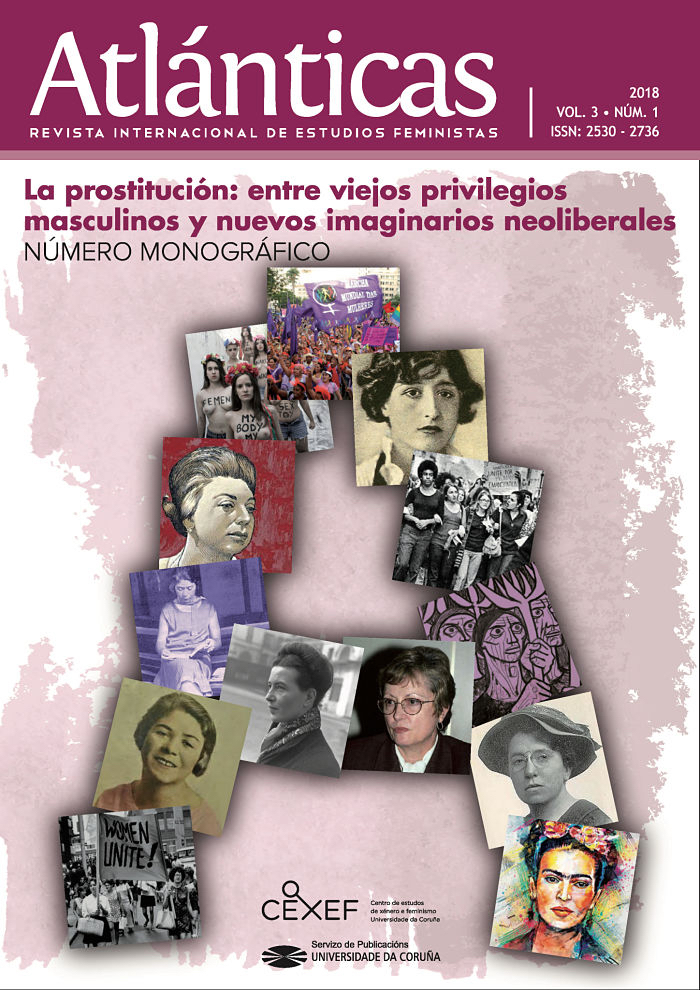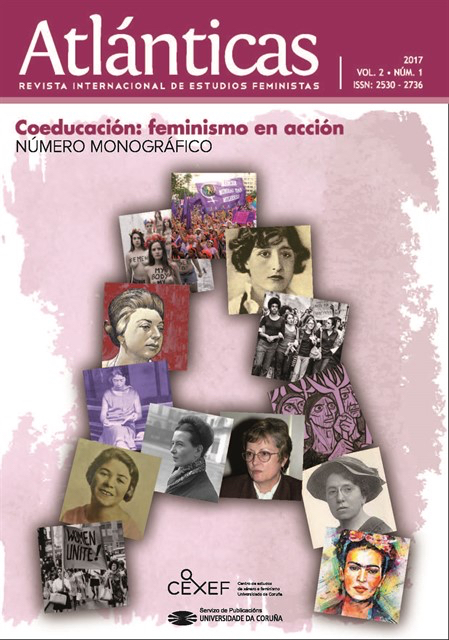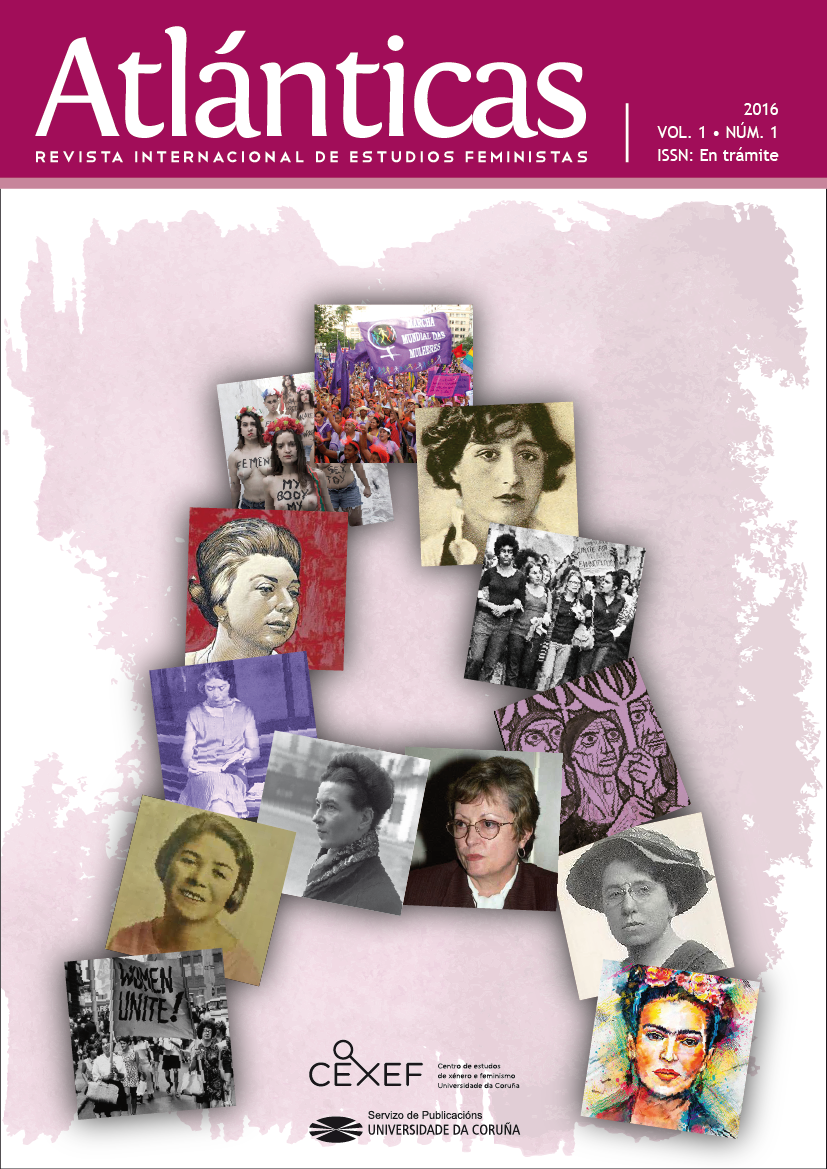Archivos
-

Constitucionalismo y feminismo
Vol. 10 Núm. 2 (2025)El constitucionalismo contemporáneo se encuentra en un momento de profunda reflexión sobre sus fundamentos, sus límites y sus potencialidades transformadoras. En este contexto, la intersección entre constitucionalismo y feminismo constituye uno de los debates más relevantes y transformadores del pensamiento jurídico contemporáneo, emergiendo como uno de los campos más fértiles y necesarios para repensar los marcos jurídico-políticos que organizan nuestras sociedades democráticas. Este número monográfico que presentamos aborda precisamente esta confluencia, demostrando que el feminismo no constituye una perspectiva sectorial o temática que añadir externamente al constitucionalismo tradicional, sino una mirada epistemológica y política transformadora que puede y debe renovar profunda y sistemáticamente la teoría y la práctica constitucional en su conjunto. En un momento histórico en que las democracias constitucionales enfrentan múltiples desafíos internos y externos —desde el autoritarismo hasta la crisis ecológica, desde las desigualdades extremas hasta los fundamentalismos—, el constitucionalismo feminista ofrece herramientas conceptuales, metodológicas y prácticas indispensables para construir sociedades más justas, igualitarias y sostenibles. El constitucionalismo feminista no es solamente un campo académico emergente entre otros, sino una necesidad democrática urgente e impostergable en sociedades que aspiran seriamente a hacer efectivos, verificables y universales los principios de igualdad, dignidad humana y justicia social que proclaman solemnemente sus constituciones. -
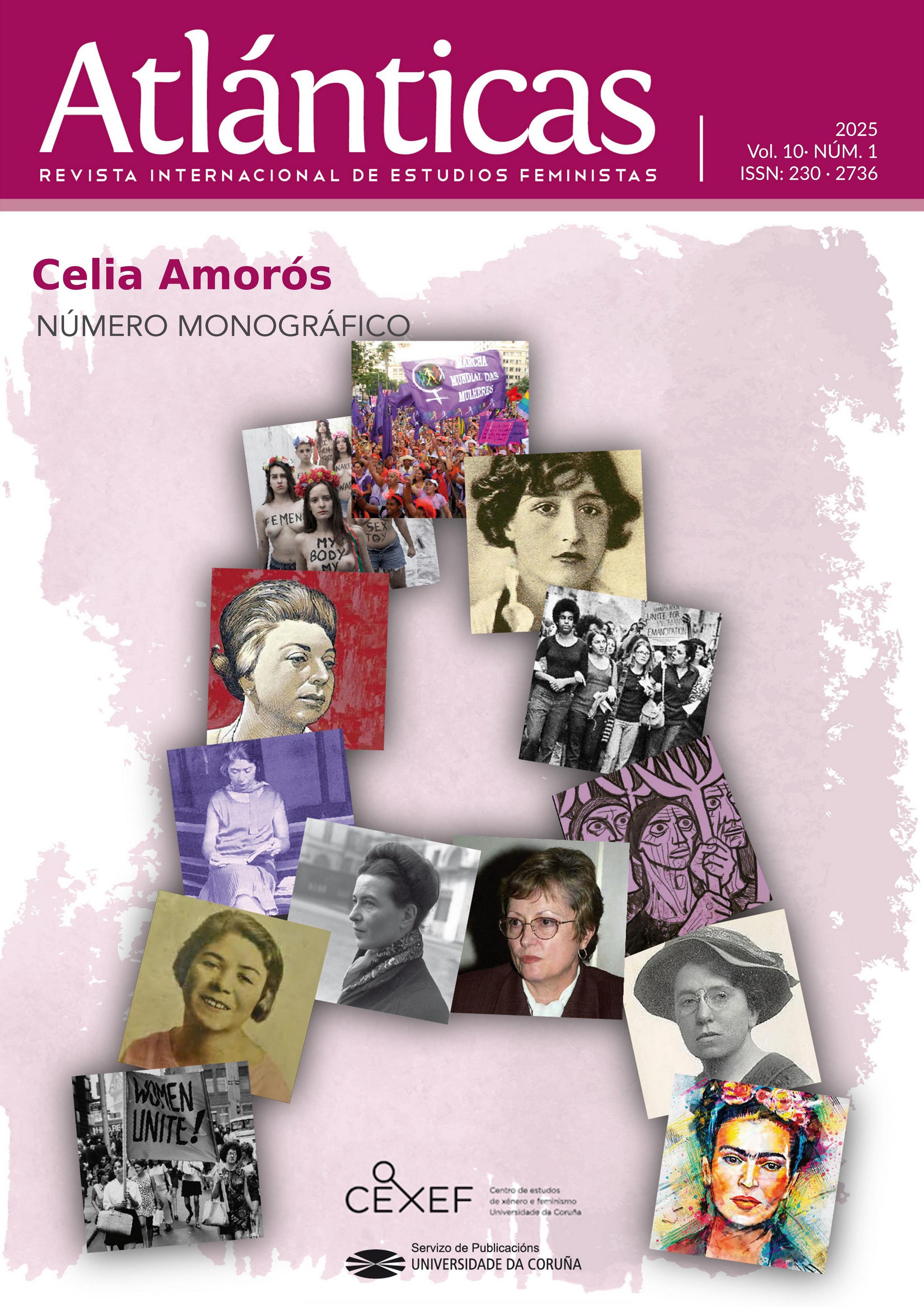
El feminismo filosófico de Celia Amorós
Vol. 10 Núm. 1 (2025)En este monográfico presentamos siete artículos y una reseña sobre la filósofa Celia Amorós, escritos por algunas de sus discípulas, con el objetivo de dar cuenta de los aspectos más importantes de su pensamiento. En su obra se funden teoría y praxis, tal y como corresponde a una obra realizada desde la teoría crítica, en la que el rigor conceptual y el rechazo a caminos trillados marcan su discurso.
-
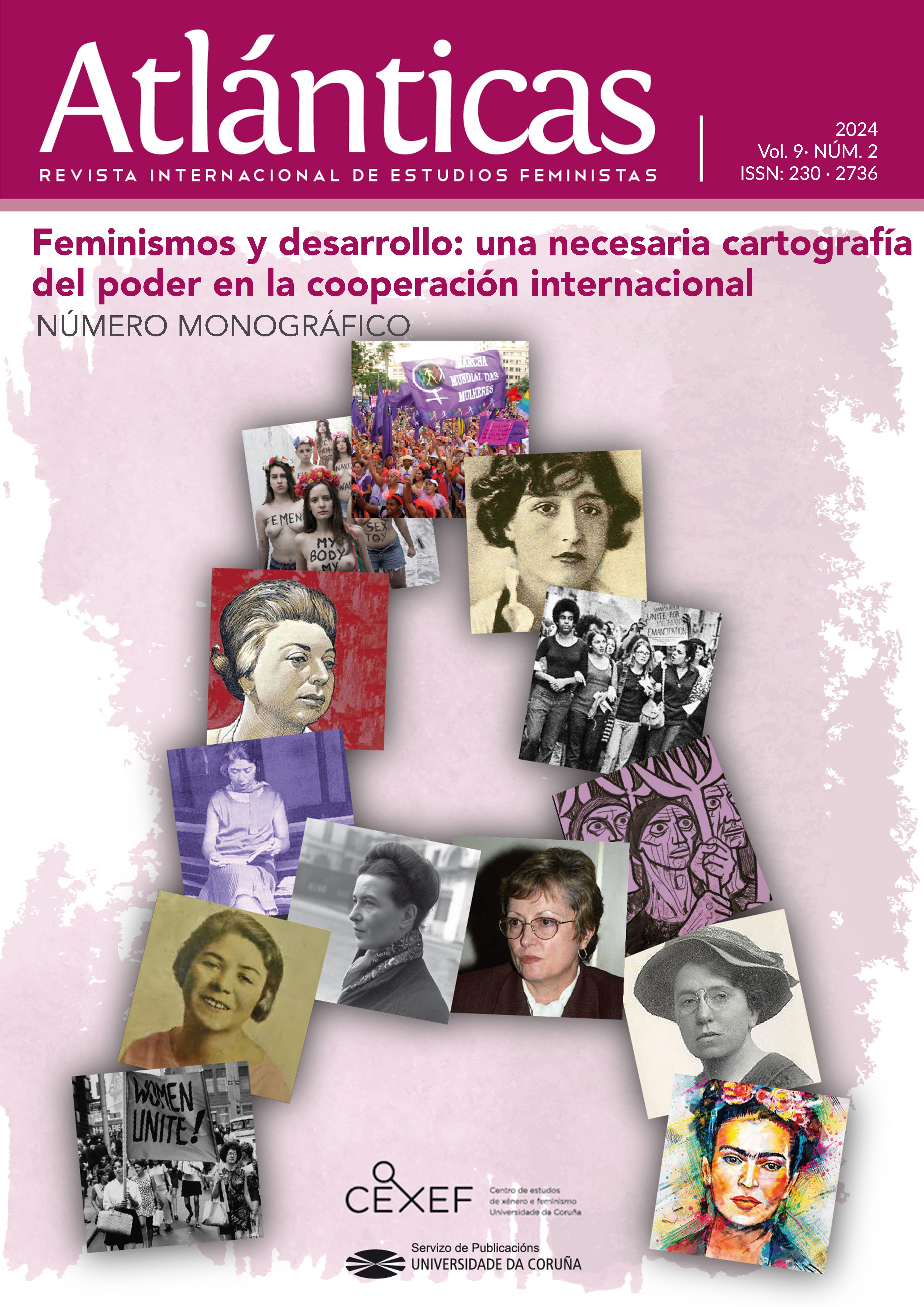
Vol. 9 Núm. 2 (2024)
El mundo en el que nació la cooperación internacional ha cambiado sustancialmente. Sin embargo, y aunque la agenda del desarrollo y de la ayuda internacional ha experimentado cambios de envergadura, no han sido suficientes para avanzar en respuestas colectivas y justas ante los retos globales actuales. Es paradójico que cuando más necesarios son los esfuerzos de cooperación, colaboración y solidaridad, la cooperación al desarrollo esté atravesando por una profunda crisis de legitimidad, de resultado y de identidad. El actual reto ineludible del sistema es el de transformarse plenamente frente al riesgo de convertirse en una política completamente irrelevante, o bien, de perder su carácter distintivo. Las transformaciones que necesita la cooperación al desarrollo trascienden los cambios en el sistema de medición de la ayuda, y enfatizan la necesidad de abordar un profundo debate en torno a sus orientaciones y objetivos, las relaciones de poder que se establecen entre países y actores, o las normas, los instrumentos y los procedimientos que le son propios (Alonso, Aguirre y Santander, 2019; de la Cruz, 2015; Martínez, 2019; Pajarín, 2021; Ramos, 2024; Unceta, Martínez y Goiria, 2021; Zabala y Martínez, 2017).
En este contexto, resultan de especial interés las propuestas de cambio que apuntan a fortalecer el papel de la cooperación internacional en la conformación de un nuevo marco de justicia internacional, así como su contribución a la transición hacia modelos de producción, consumo, organización y convivencia global alternativos (Martínez, 2019) centrados en la justicia social, la justica de género, racial y ambiental. Desde esta perspectiva, se hace necesaria una exploración y una apuesta más contundente y sistemática por fórmulas de Educación para la Ciudadanía Global o para la Justicia Global. Los feminismos y en concreto, la educación feminista transformadora, se constituye en la brújula imprescindible en ese proceso. Un nuevo modelo de cooperación internacional ha de orientarse hacia las causas estructurales de las desigualdades y de las vulneraciones de derechos, así como a la generación de ciudadanías críticas, responsables, con conciencia y lazos globales. De nuevo, el proyecto emancipatorio feminista como experiencia de movimiento social de incidencia con vínculos globales y, a la vez, con propuestas de transformación que parten de los saberes y las experiencias cotidianas y localizadas, se vuelve el eje de un cambio verdaderamente transformador (Pajarín, 2022)
-
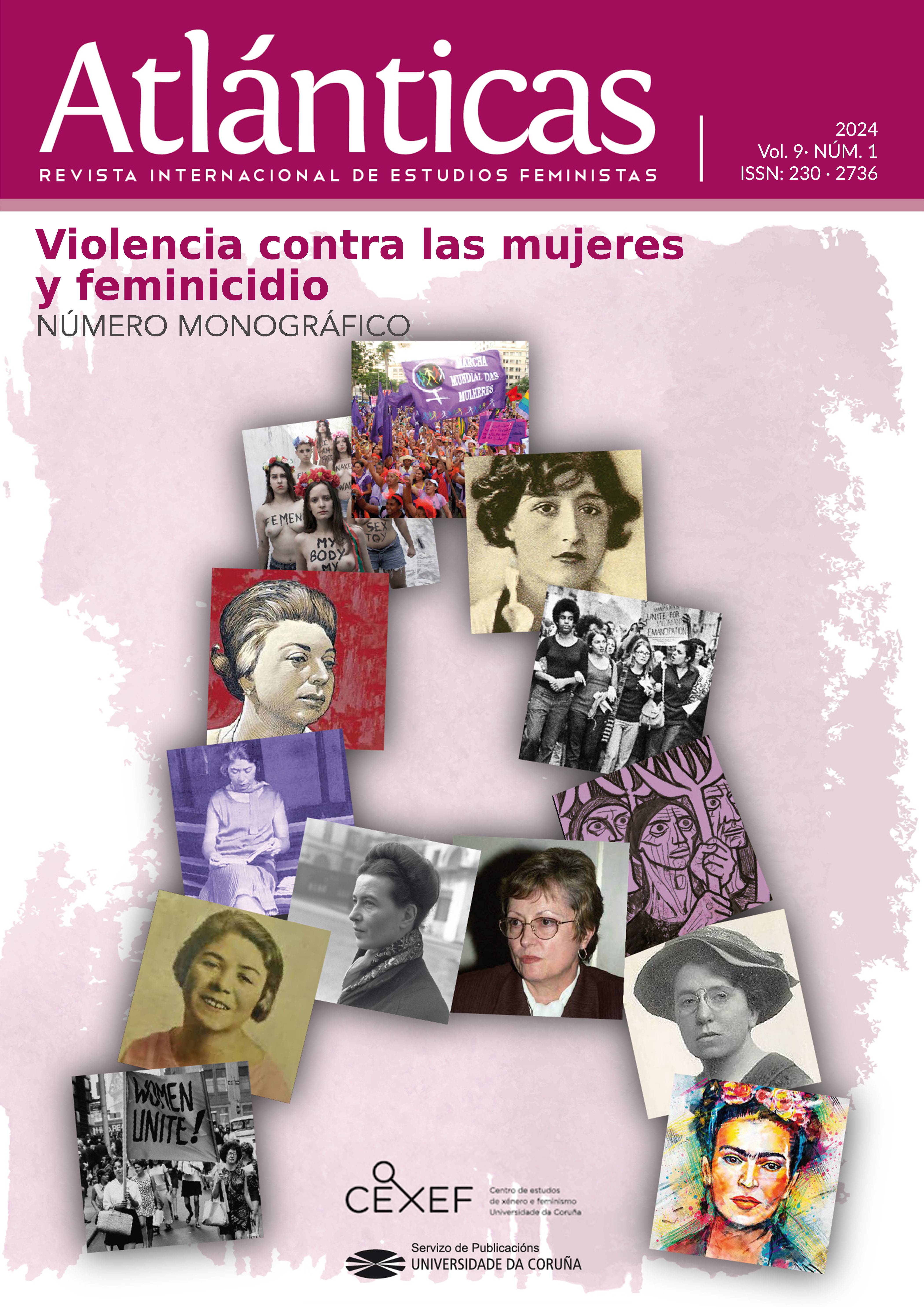
Vol. 9 Núm. 1 (2024)
Conceptualizar la violencia contra las mujeres constituye la contribución más transformadora del Feminismo a los derechos humanos de las mujeres. Al definir la violencia contra las mujeres como consecuencia de la discriminación, el Feminismo logró sacarla del ámbito de la esfera privada y señalar su carácter estructural, enraizada en prácticas e instituciones; así como diferenciarla de otros tipos de violencia social.
-
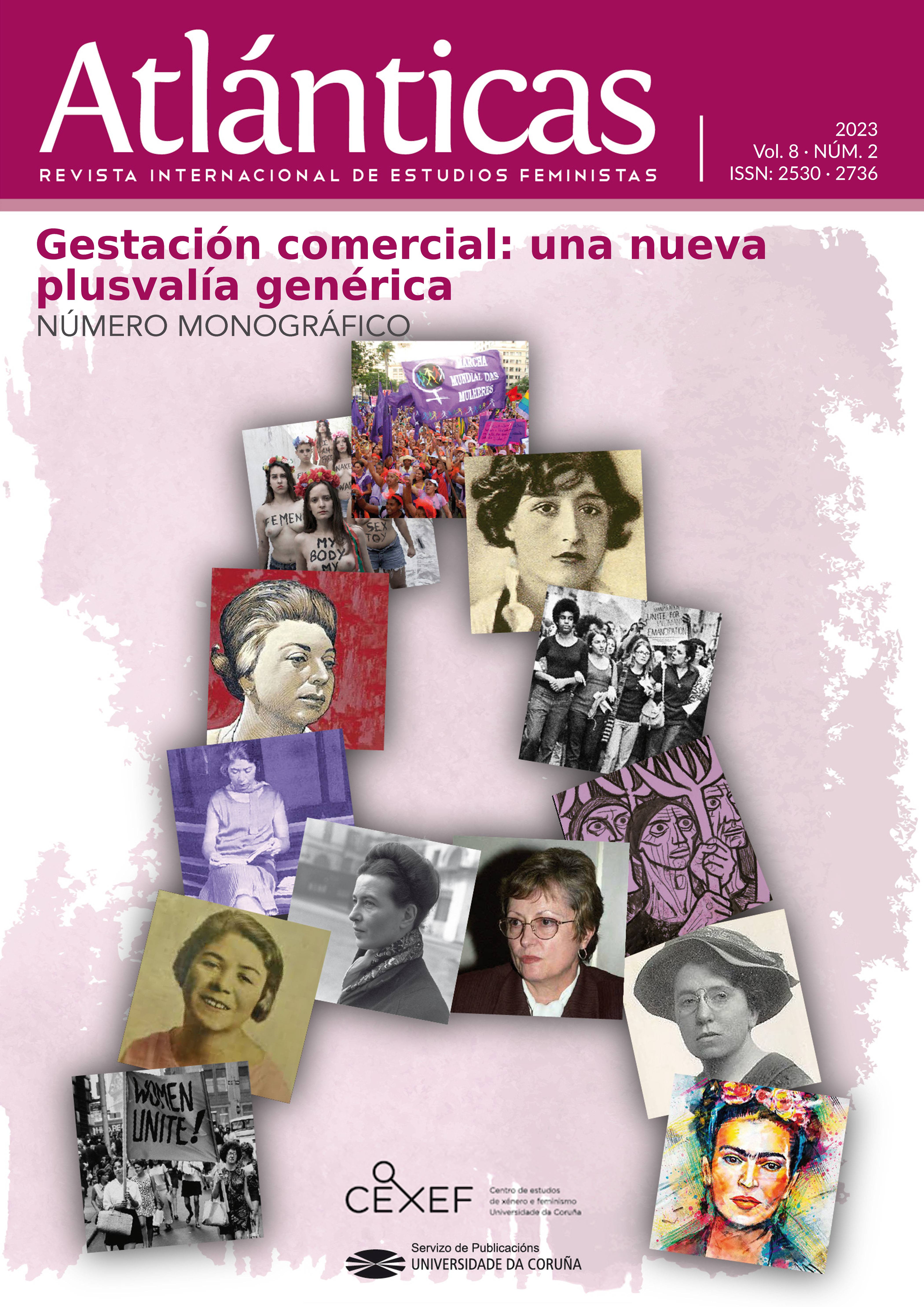
Vol. 8 Núm. 2 (2023)
Hace más de tres décadas Carole Pateman (1988) identificaba dos instituciones fundacionales del Contrato Sexual y la sujeción femenina: el matrimonio y la prostitución, las mujeres privadas y las públicas. Las privadas aseguraban la descendencia del varón en el marco de la unión matrimonial y, por tanto, no deben ni pueden ser de acceso público. Las segundas, definidas como públicas, garantizan el privilegio patriarcal de disponibilidad sexual de una mujer en cualquier momento y ocasión. Frente a la mujer privada-buena, consagrada al esposo, a la familia y con una proyección pública de su honra y dignidad estrechamente vinculada al interdicto de su libertad sexual, la mujer pública-mala se construyó como un opuesto y complementario sexualizado. Pero, como señala Ekis Ekman (2013), la industria gestacional ha roto ese binarismo para reinventarse un nuevo modelo: la mujer “pública” buena, una solidaria gestante que cede su cuerpo, su capacidad reproductiva, pone en riesgo su salud y asume empáticamente las secuelas físicas y psicológicas de una hiperhormonación, un embarazo y un parto para cumplir los deseos de paternidad/maternidad de personas desconocidas cediendo, a través de una empresa intermediaria, la custodia y filiación de sus hijas/os.
-
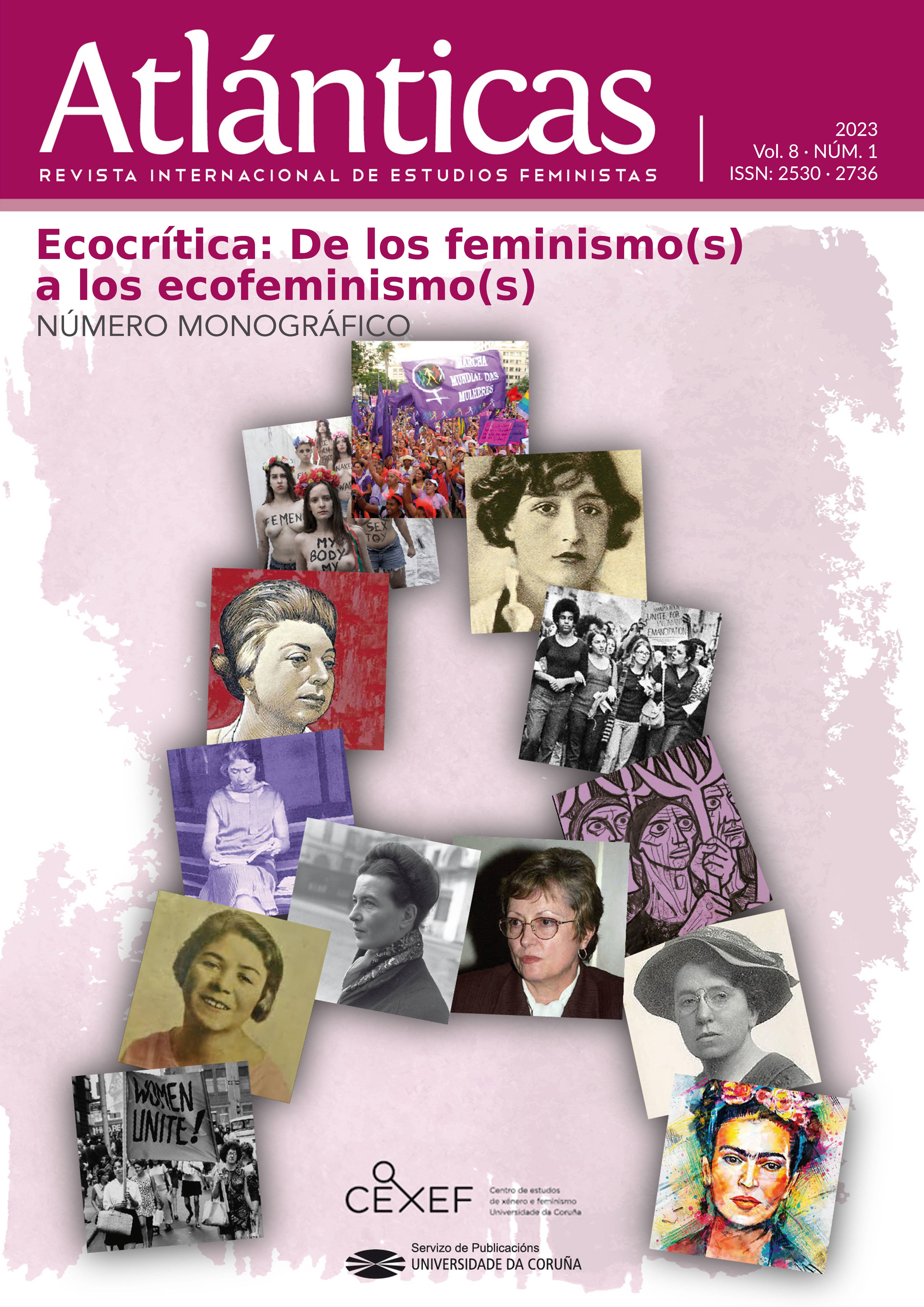
Vol. 8 Núm. 1 (2023)
Este número monográfico sobre ecofeminismo(s) se inserta en el marco de los ensayos que promovían la igualación de la mujer y que han aparecido desde la era moderna en varios países europeos, como el del autor francés François Poullain de la Barre en De la educación de las damas (1671) o The Equality of the Sexes (1673) o con las británicas Mary Astell, A Serious Proposal to the Ladies (1694-97) y Mary Wollstonecraft, Vindication of the Rights of Woman (1792), y con muchos otros pensadores que desde el renacimiento enfatizaron la necesidad de que las mujeres sean consideradas iguales tanto desde el punto de vista intelectual como de sus derechos civiles como ciudadanas. La mujer o los animales eran muchas veces equiparados y considerados como seres subsidiarios, con el propósito de cuidar, ayudar o abastecer en la sociedad patriarcal. La defensa de los animales ya había sido valorada por las sufragistas británicas, que -además de reivindicar el derecho al voto- se oponían claramente a la vivisección de animales no humanos como una conducta carente de ética y empatía.
-
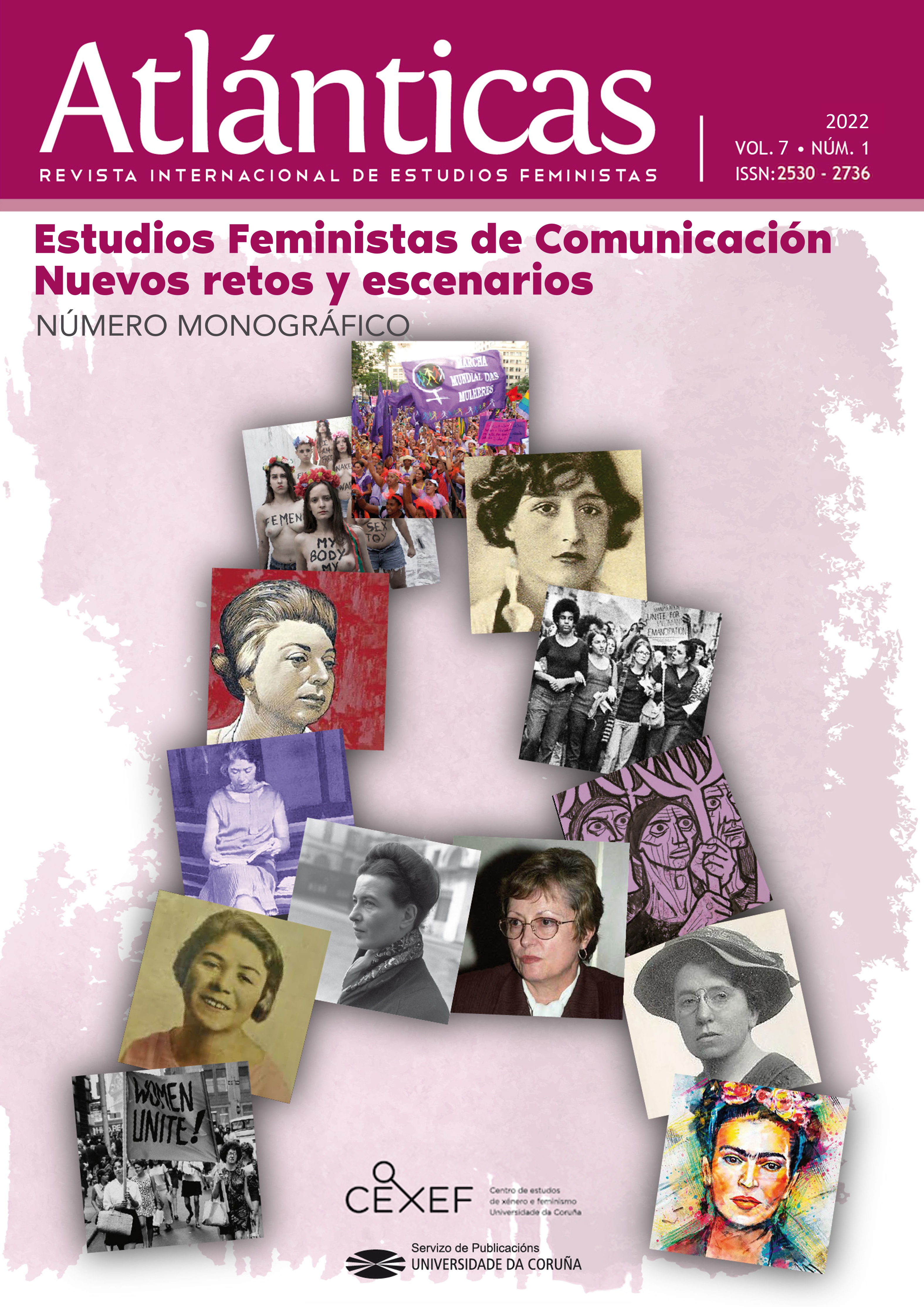
Vol. 7 Núm. 1 (2022)
En los últimos años los Estudios Feministas de Comunicación se han visto inmersos en un proceso de evolución para dar respuesta a un contexto cada vez más complejo. De los medios de comunicación como marco temático y de interpretación, dichos estudios han pasado a integrar el medio digita en sus diversas formas y manifestaciones. No es casualidad. Internet ha adquirido una posición central en las sociedades contemporáneas. El elevado volumen e intensidad de conexiones e interacciones en plataformas y servicios en línea los ha situado como principales espacios de socialización, dotando a sus contenidos y relaciones de un carácter performativo. En este contexto resulta preciso [y urgente] analizar las plataformas sociales, Internet —y por extensión— las nuevas tecnologías desde una perspectiva feminista. Y este es el cometido del monográfico “Estudios feministas de comunicación. Nuevos retos y escenarios”. A través de las contribuciones de investigadoras del ámbito nacional e internacional, se presentan análisis y reflexiones de diversos fenómenos que nos permiten una aproximación de valor al fenómeno comunicativo hoy desde una perspectiva feminista.
-
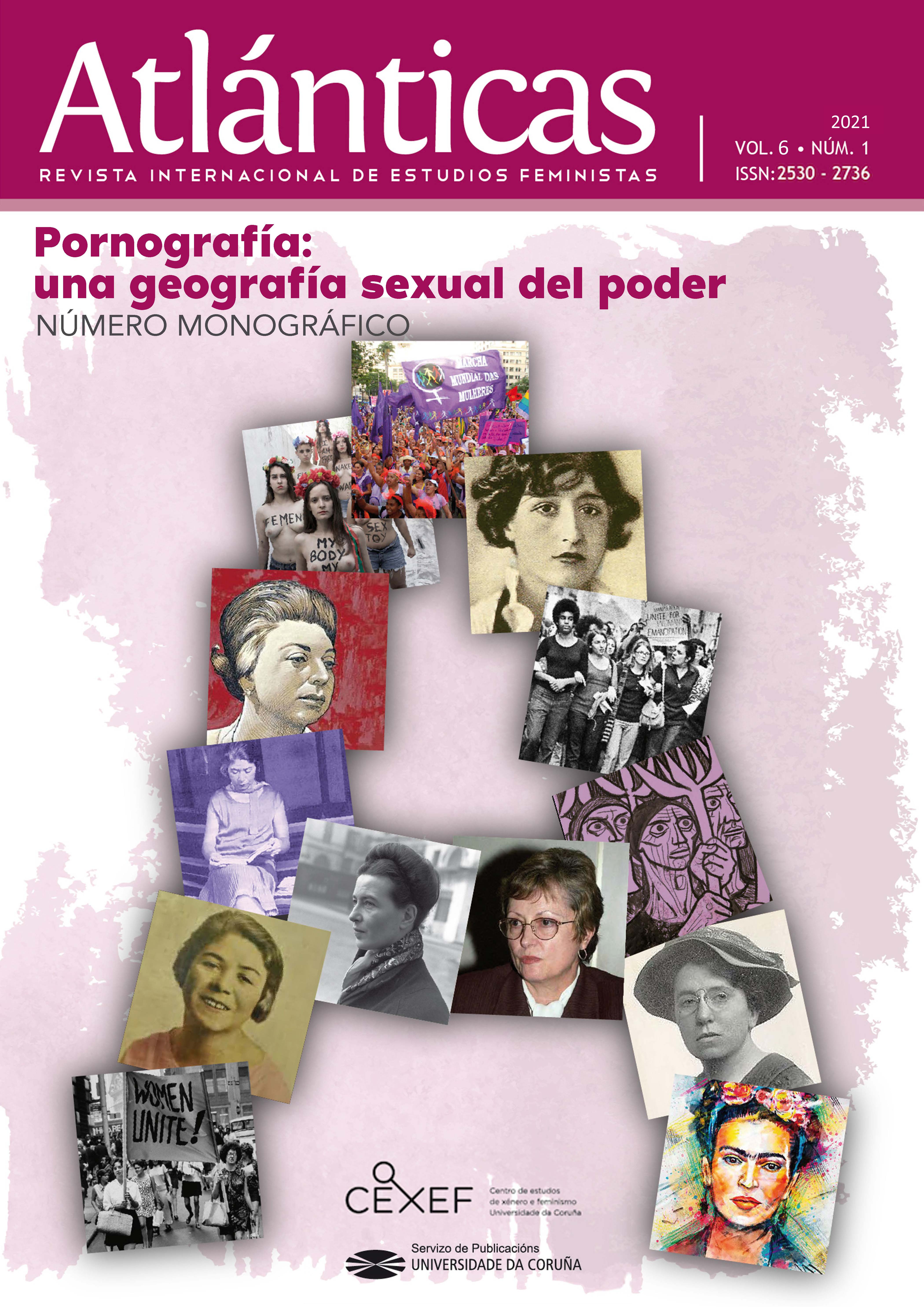
Vol. 6 Núm. 1 (2021)
El título del presente monográfico es un guiño a un elemento central de la pornografía definido por Andrea Dworkin en su libro Men Possessing Women (2015/1981), quien supo percibir que aquello que dibuja la pornografía es una geografía sexual del poder, que se constituye, en su fundamento original, de la violencia ejercida por el falo y de un discurso sádico contra las mujeres y lo femenino. La necesidad de mapear profundamente los conceptos que emanan del discurso pornográfico, de la producción de su gigantesca industria, de su influencia cultural o de los impactos sobre el imaginario sexual, ha impulsado la elaboración del compendio de artículos que presentamos a continuación. Como suma de ello, realizar una geografía feminista de la pornografía y definir el paisaje sexual que genera, es una interesante línea de investigación que se quiere estimular con la publicación de este monográfico.
-
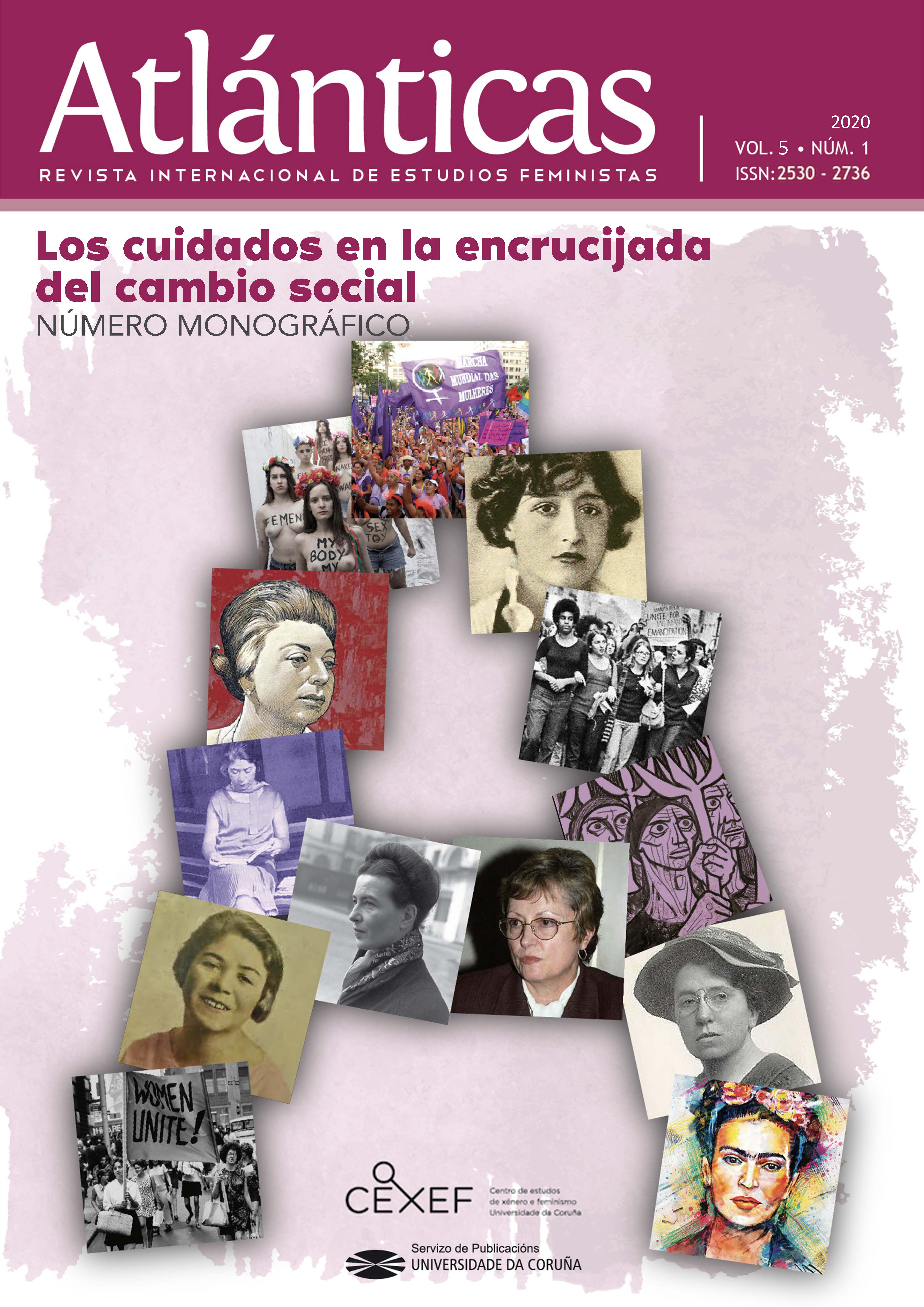
Vol. 5 Núm. 1 (2020)
Los cuidados han sido un objeto de interés de los estudios feministas y de género desde sus inicios, siendo una de las principales preocupaciones de las pioneras de la Sociología, pero teniendo también una particular relevancia en el feminismo de los setenta. En la actualidad, la crisis de los cuidados, exacerbada por la pandemia de coronavirus, ha puesto de relieve la vigencia de esta temática de investigación en la que se entrecruzan diversos paradigmas teóricos y contribuciones que interrogan críticamente los cimientos de la división sexual del trabajo, los fundamentos del Estado (particularmente, del Estado del Bienestar) y las políticas públicas.
-
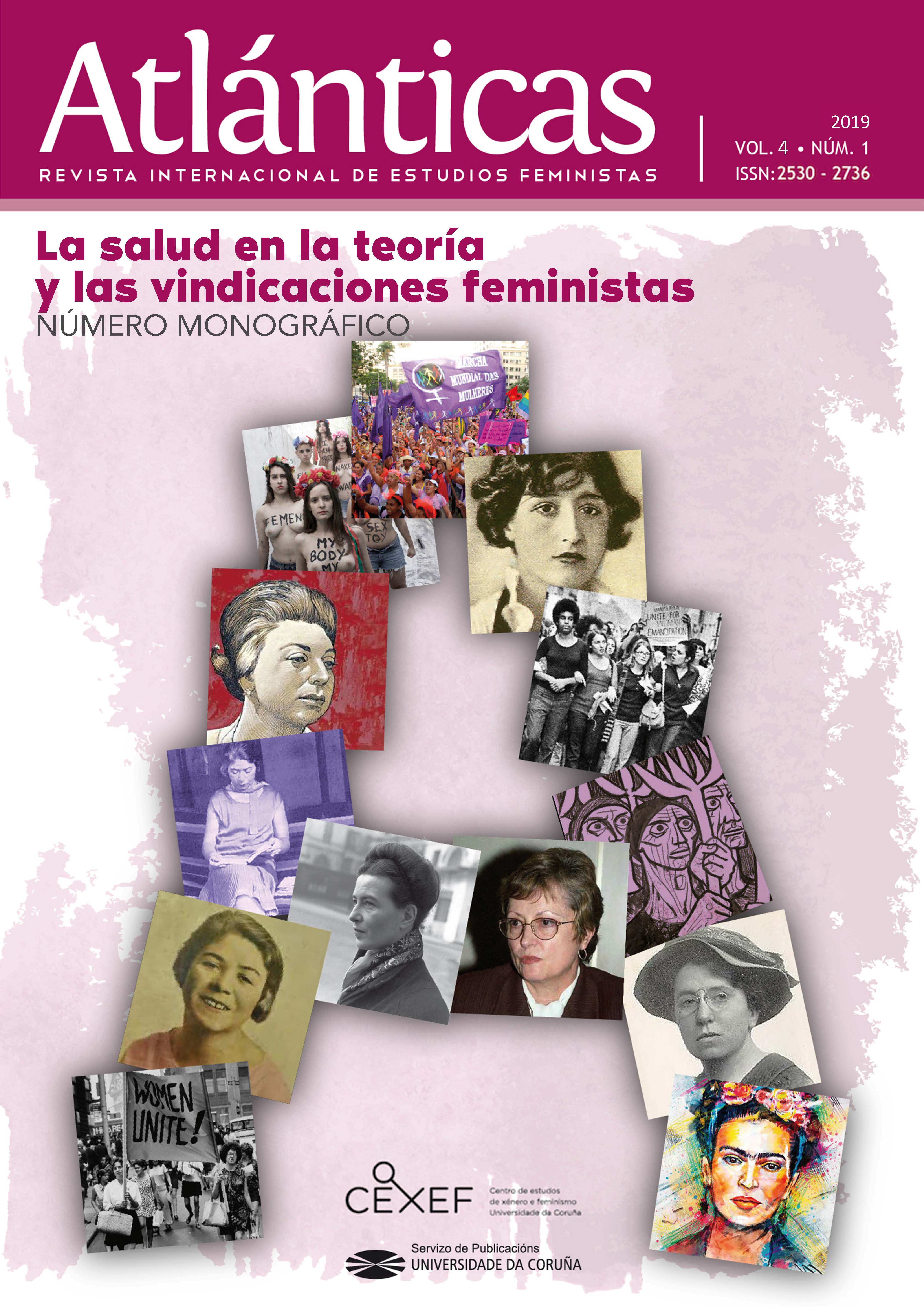
Vol. 4 Núm. 1 (2019)
En el feminismo contemporáneo, el ámbito de la salud es una de las áreas objeto de estudio y análisis crítico, de teorización e investigación. Los estudios e investigaciones feministas han puesto de manifiesto que los discursos sobre la salud, el malestar y la enfermedad de las mujeres, las prácticas clínicas y profesionales, las ciencias y las políticas sanitarias han sido históricamente herramientas imprescindibles del patriarcado para el control y la subordinación de las mujeres. Por ello, el campo de la salud es también objeto de movilización feminista, de vindicación de políticas públicas dirigidas a la transformación de las ciencias y las instituciones sanitarias, a la formación de profesionales en el paradigma feminista y a la creación de nuevos protocolos de atención a las problemáticas de salud de las mujeres.
